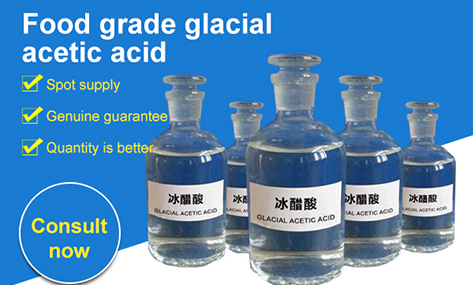
7 月 . 30, 2024 05:46 Back to list
Exploring the Chemical Structure and Properties of Glacial Acetic Acid in Various Applications
Understanding Glacial Acetic Acid Composition, Uses, and Safety
Introduction
Glacial acetic acid is a colorless, hygroscopic liquid known for its pungent odor and acidic properties. Its chemical formula is CH₃COOH, indicating that it consists of two carbon atoms, four hydrogen atoms, and two oxygen atoms. When in its pure form, glacial acetic acid typically contains no water and is referred to as “glacial” due to its ability to solidify at low temperatures. This article explores the composition, various applications, and safety considerations related to glacial acetic acid.
Chemical Composition
The simple structure of glacial acetic acid is a result of its carboxylic acid functional group (-COOH). The presence of this group is what imparts the acidic properties to the compound. While acetic acid can be found in solution with water (often referred to as vinegar when diluted), glacial acetic acid is the concentrated form. At temperatures below 16.6 °C (62 °F), it crystallizes into a solid, resembling ice, hence the term “glacial.”
Industrial Applications
Glacial acetic acid has diverse industrial applications. It serves as a critical building block in the chemical industry, primarily in the production of various chemicals and compounds. One of its largest uses is in the production of acetic anhydride, which is essential for manufacturing plastics, synthetic fibers, and pharmaceuticals. Additionally, it is employed in producing acetate esters which are used as solvents, plasticizers, and coatings.
In the food industry, diluted acetic acid (vinegar) is widely used as a preservative and flavoring agent. Although glacial acetic acid is not consumed directly, it can be diluting and utilized in food preservation processes. Furthermore, in laboratories, it is commonly used as a reagent in chemical reactions, including esterification and dehydrogenation processes.
glacial acetic acid formula

Biotechnological and Medical Uses
Glacial acetic acid also finds applications in the field of biotechnology and medicine. It acts as an antimicrobial agent and is sometimes used in medical treatments, for instance, in the treatment of certain infections. Acetic acid solutions can be employed during surgeries to clean and disinfect affected areas. Additionally, its role in the synthesis of various drugs makes it valuable in pharmaceutical manufacturing.
Safety Considerations
While glacial acetic acid has numerous beneficial uses, it is crucial to handle it with care due to its corrosive nature. Direct contact can cause burns on the skin or damage to the eyes. Inhalation of vapors may lead to respiratory irritation. Therefore, appropriate safety measures, such as wearing gloves, goggles, and protective clothing, are essential when working with this chemical.
In industrial settings, proper ventilation is required to mitigate the risk of inhalation exposure. Storage of glacial acetic acid should be in well-ventilated locations, away from heat sources or incompatible substances, such as strong oxidizers, which could result in hazardous reactions.
Conclusion
Glacial acetic acid, with its chemical formula CH₃COOH, is a versatile compound with a multitude of applications across various industries, including chemicals, food, pharmaceuticals, and biotechnology. However, its corrosive nature necessitates careful handling and adherence to safety guidelines. Understanding both the benefits and risks associated with glacial acetic acid is essential for its effective and safe use in different professional environments. As industries continue to innovate and expand, the importance of glacial acetic acid remains integral, signaling its lasting relevance in both industrial and scientific arenas.
